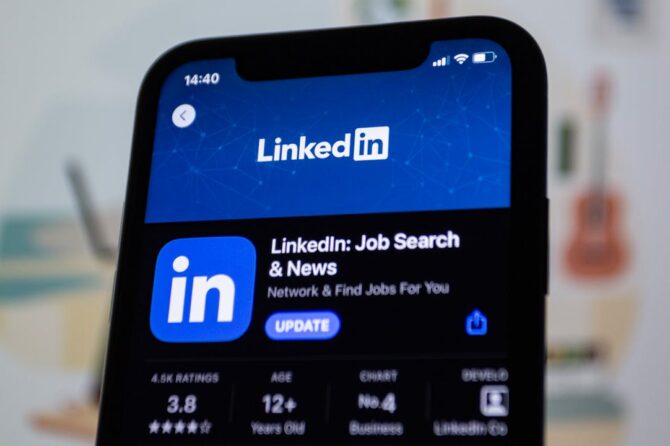Unemployment can be one of the most stressful and uncertain periods in a person’s life. When you’re actively searching for work, every rejection, delayed response, or lack of progress can feel disheartening. So when a job offer comes your way, even if it’s not the perfect fit, it might seem like a lifeline. But should you take it?
While some situations warrant turning down an offer, there are many cases where accepting a job—while continuing to look for something better—is the smarter move. Let’s explore when to say no, when to say yes, and how to strategically navigate job searching while employed.
When to Say No to a Job Offer While Unemployed
Not every opportunity is worth taking. Even if you’re eager to re-enter the workforce, there are valid reasons to reject a job that isn’t the right fit:
1. Toxic Work Environment
If you get red flags during the interview process—such as high turnover, negative reviews on sites like Glassdoor, or a sense that leadership is disorganized or unsupportive—it’s worth reconsidering. A toxic work environment can negatively impact your mental health, making it even harder to focus on your long-term career goals. Before accepting an offer, take the time to research the company using sites like Glassdoor, Indeed, and LinkedIn. Look for employee reviews that highlight workplace culture, management styles, and overall job satisfaction. If you notice consistent complaints about unrealistic expectations, lack of support, or poor work-life balance, these may be signs that the company isn’t a good fit.
2. Severe Underpayment
If a job pays significantly below market value for your skills and experience, it may not be worth accepting. While you might think any paycheck is better than none, accepting far below your worth can make it harder to negotiate better pay in the future. Additionally, if a company undervalues you now, they may not offer fair raises or promotions later.
3. Extreme Misalignment with Your Career Goals
Sometimes, a job can be a stepping stone. But if the role is in a completely different industry or function from where you want to be, it could derail your career trajectory. For example, if you’re a marketing professional but accept an unrelated administrative role, recruiters might later question your experience.
Why You Might Want to Accept an Imperfect Job
While there are reasons to decline an offer, in many cases, accepting a less-than-perfect job while continuing your search can be a smart strategy. Here’s why:
1. Financial Stability
Let’s face it—being unemployed is stressful, especially when bills pile up. Even if a job isn’t ideal, having a steady paycheck can relieve financial pressure and allow you to conduct your job search with a clearer head rather than out of desperation.
2. Reduced Resume Gaps
Long gaps in employment can sometimes raise concerns for future employers. Taking a job, even if it’s temporary or not your dream role, keeps your experience current and demonstrates your willingness to work. Many hiring managers prefer candidates who are employed, as it signals motivation and commitment.
3. Networking Opportunities
A job—even one outside your ideal industry—connects you with new people who may lead you to your next great opportunity. Many career changes happen through referrals, and being in a professional setting increases your chances of meeting someone who can help advance your career.
4. Gaining New Skills
Even if a job isn’t exactly what you envisioned, it might provide valuable experience that enhances your resume. You might develop soft skills like leadership, teamwork, or communication, or even gain technical knowledge that could open doors in unexpected ways.
5. Boosted Confidence and Routine
Unemployment can take a toll on your mental health. The lack of routine and feelings of rejection can be discouraging. Taking a job, even temporarily, can restore a sense of purpose, structure, and confidence while you continue to pursue your dream job.
How to Keep Job Searching While Employed
If you accept a job but still want to find something better, here’s how to balance both effectively:
1. Continue Networking
Keep in touch with recruiters, attend industry events, and stay active on LinkedIn. Let trusted contacts know that while you’ve taken a role, you’re still open to other opportunities.
2. Apply Selectively
Instead of mass-applying to any open job, focus on positions that truly align with your long-term goals. Being employed gives you the advantage of being more strategic in your applications.
3. Use Your Free Time Wisely
Dedicate time outside of work to updating your resume, refining your interview skills, and researching companies you want to target. Set aside specific hours for job searching so you don’t feel overwhelmed.
4. Leverage Remote or Hybrid Work Flexibility
If your current job is remote or hybrid, use that flexibility to your advantage. Remote work can make it easier to schedule interviews without raising suspicion, giving you the freedom to explore better opportunities while maintaining your current role.
5. Be Professional About Leaving
If you land a new opportunity quickly, handle your departure professionally. Provide proper notice, complete any pending work, and leave on good terms. Burning bridges isn’t worth it—your former colleagues or managers might be valuable connections down the line.
Final Thoughts
While waiting for the “perfect” job might seem like the best approach, it’s not always practical. In many cases, accepting a job while unemployed is the smarter move—it provides financial security, keeps your experience fresh, and can lead to unexpected opportunities. The key is to stay proactive, keep your long-term goals in mind, and remember that no job has to be forever.
At the end of the day, your career is a journey, not a single decision. Taking an imperfect job doesn’t mean settling—it means positioning yourself for the next, better opportunity that’s waiting around the corner.











